Goodpasture Syndrome Specimens
Bay Biosciences provides high quality, clinical grade bio-samples, cryogenically preserved biopsy tissue, FFPE blocks, sera (serum), plasma and peripheral blood mononuclear cells (PBMC) biofluid specimens from patients diagnosed with Goodpasture Syndrome.
The sera (serum), plasma and PBMC biofluid samples are processed from patient’s peripheral whole-blood using customized processing protocols. The Goodpasture Syndrome bio-specimens are collected from unique patients diagnosed with Goodpasture Syndrome and are provided to a valued pharmaceutical customer for translational research, genomics, proteomics and biomarker, research, drug discovery and development.
Goodpasture Syndrome (Anti-GBM Antibody Disease) Overview
Goodpasture Syndrome (GPS), also known as Anti-Glomerular Basement Membrane antibody disease, is a rare but serious autoimmune disease that attacks the lungs and kidneys (may quickly result in permanent lung and kidney damage) and is characterized by pulmonary alveolar hemorrhage (bleeding in the lungs) and a kidney disease known as glomerulonephritis. Basement membranes provide structural support to epithelium, endothelium, muscles, fat cells, Schwann cells, and axons. Basement membranes are multifunctional: they modulate cellular behavior, regulate organogenesis, promote tissue repair, form a barrier to filtration and tumor metastasis, bind growth factors, and mediate angiogenesis. The Goodpasture Syndrome (GPS) disease occurs when the body’s immune system mistakenly produces antibodies which attack the basement membrane in lungs and kidneys, leading to bleeding from the lungs and kidney failure. All basement membranes contain type IV collagen (Col IV), laminin, nidogen, and perlecan. Collagen is a protein that helps form connective tissue. It is thought that antibodies attack the alpha-3 subunit of type IV collagen, which has therefore been referred to as Goodpasture’s antigen. Goodpasture syndrome may quickly result in permanent lung and kidney damage, often leading to death. It is treated with medications that suppress the immune system such as corticosteroids, cyclophosphamide , and plasmapheresis, in which the antibodies are removed from the blood.
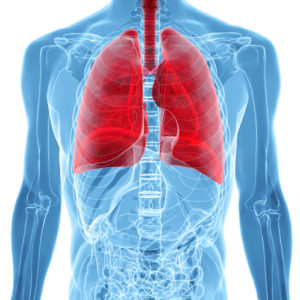
Some use the term “Goodpasture syndrome” for the findings of glomerulonephritis and pulmonary hemorrhage and the term “Goodpasture disease” for those patients with glomerulonephritis, pulmonary hemorrhage, and anti-GBM antibodies. Currently, the preferred term for both conditions is “anti-GBM antibody disease”. Circulating antibodies are directed against the collagen of the part of the kidney known as the glomerular basement membrane (GBM), resulting in acute or rapidly progressive glomerulonephritis. Antibodies also attack the collagen of the air sacs of the lung (alveoli) resulting in bleeding of the lung (pulmonary hemorrhage). Symptoms may include general body discomfort or pain, bleeding from the nose and/or blood in the urine, respiratory problems, anemia, chest pain, and kidney failure. Anti-GBM disease is thought to result from an environmental insult (smoking, infections, exposure to certain drugs) in a person with genetic susceptibility, such as a specific human leukocyte antigen (HLA) type. Diagnosis is confirmed with the presence of anti-GBM antibody in the blood or in the kidney. The treatment of choice is plasmapheresis in conjunction with prednisone and cyclophosphamide.
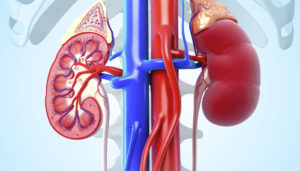
Goodpasture Syndrome (Anti-GBM Antibody Disease) Symptoms
The signs and symptoms related to the lung disease may include:
- Fatigue
- Nausea and Vomiting
- Bleeding from the nose (hemoptysis), which occur before the kidney disease in about two thirds of cases and is present in majority of the adults
- Cough in most cases
- Difficulty Breathing (Dyspnea)
- Pale Skin-Pallor (the most common clinical sign)
- Crackles and rhonchi (low-pitched, rattling sound)
- Heart Murmur
- Enlarged Liver (Hepatomegaly)
- Edema
Prompt diagnosis of pulmonary hemorrhage is vital because it is the principal cause of the early death in patients with anti-GBM antibody disease.
The signs and symptoms related to the kidney disease may include:
- Blood in Urine (Hematuria)
- Foamy Urine
- Swelling in the Legs
- Burning or difficulty when urinating
- Protein in Urine (Proteinuria)
- Abnormal Kidney Function
- Back Pain below the ribs
- Swelling of the hands and feet
- Hypertension (High Blood Pressure)
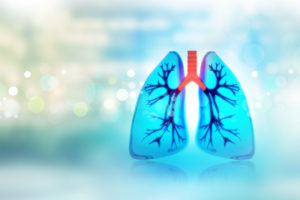
Goodpasture Syndrome (Anti-GBM Antibody Disease) Causes
Additional research is required to learn much more about the cause of Goodpasture Syndrome. It is thought that a combination of genetic and environmental factors, such as cigarette smoke, inhaled hydrocarbons, and viruses play a role in the development of this autoimmune condition. In autoimmune disorders, the body makes antibodies that attacks its own tissues. In the case of Goodpasture syndrome, antibodies form against a certain type of protein called collagen. Collagen is present in many tissues in the body. In Goodpasture syndrome, collagen in the alveoli (tiny air sacs in the lungs) and in the glomeruli (the filtering units of the kidney) is attacked. This leads to bleeding in the air sacs and inflammation in the glomeruli of the kidney. Symptoms of the antibody attack may include shortness of breath, cough, bloody sputum, blood and protein in the urine, and kidney failure.
- Exposure to certain chemicals, such as hydrocarbon solvents and the weed killer paraquat
- Exposure to metallic dust
- Use of certain drugs, such as cocaine
- Tobacco Smoking
- Viral Infections
Goodpasture syndrome usually affects young men. It is more common among white patients, and it most commonly affects patients who are:
- Between ages 20 and 30
- Older than age 60
Genetic predisposition to Goodpasture syndrome involves the human leukocyte antigen (HLA) system. The HLA system is involved in helping our immune system know the difference between “self” and “non-self.” Human leukocyte antigens determine a person’s tissue type. Each person has 3 pairs of major HLA antigens. We inherit one set from each of our parents (and pass one of our two sets on to each of our children).
Facts regarding Human Leukocyte Antigens (HLA) and Goodpasture Syndrome:
- A certain Human Leukocyte Antigens (HLA) antigen, HLA-DR15 (previously known as HLA-DR2), is found in majority of the Goodpasture Syndrome patients.
- Patients with Goodpasture Syndrome who have two types of HLA antigens: HLA-B8 and HLA-DR2 tend to have a worse prognosis.
- HLA antigen types HLA-DR7 and HLA-DR1 are thought to confer some protection against developing Goodpasture Syndrome.
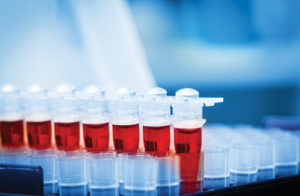
Goodpasture Syndrome (Anti-GBM Antibody Disease) Diagnosis
Diagnosis of anti-GBM antibody disease is made when a patient presents with lung hemorrhage, urinary findings such as proteinuria (protein in the urine) and hematuria (blood in the urine), and circulating anti–glomerular basement membrane (anti-GBM) antibodies.
A kidney biopsy is the best method for detecting anti-GBM antibodies in tissues. It is recommend doing a kidney biopsy in all cases while some suggest only doing the biopsy when the diagnosis is still in doubt. Light microscopy usually shows a feature known as crescentic glomerulonephritis, whereas immunofluorescence microscopy demonstrates a finding that is characteristic of this disease, of “linear deposition of IgG along the glomerular capillaries”. Patients in whom the diagnosis of lung hemorrhage is still unclear should have bronchoscopy.
In children, the most consistent feature is ‘crescentic glomerulonephritis’ with either circulating anti-GBM antibodies or linear staining of IgG on the immunofluorescence. Clinical features include severe kidney malfunction in all patients and lung hemorrhage in half of them. It is essential to promptly diagnose pulmonary hemorrhage because this is the principal cause of early death when untreated.
Conditions that affect the lung and kidney (pulmonary-renal syndromes) are important to consider and need to be ruled out when the diagnosis is not confirmed. These include granulomatosis with polyangiitis (Wegener Granulomatosis), Churg-Strauss Syndrome, Systemic Lupus Erythematosus (SLE), Microscopic Polyangiitis, Rheumatoid Arthritis, IgA-mediated disorders (eg, IgA nephropathy or Henoch-Schönlein purpura) and of immune complex–mediated renal disease (eg, Essential Mixed Cryoglobulinemia), community-acquired pneumonia and undifferentiated connective-tissue disease. In children, other diseases that also need to be ruled out are Behcet Syndrome, Hemosiderosis (bleeding into the lung and iron accumulation) and Legionella infection.
Goodpasture Syndrome (Anti-GBM Antibody Disease) Treatment
The treatment of choice for Goodpasture Syndrome and Anti-GBM antibody disease is plasmapheresis in conjunction with prednisone and cyclophosphamide. The three main goals for the treatment are:
- Rapidly remove circulating antibody, primarily by Plasmapheresis.
- Stops further production of antibodies using immunosuppression with medications, namely, corticosteroids (e.g., prednisone) and cyclophosphamide. In children, plasmapheresis is done together with corticosteroids and cyclophosphamide. The duration of the immunosuppressive treatment varies but is typically 6 months for corticosteroids and 3 months for cyclophosphamide.
- Remove offending agents that may have initiated the antibody production.
Goodpasture Syndrome patients require long-term regular visits for monitoring kidney function and for immunosuppressive therapy. If kidney function does not return, dialysis is continued indefinitely and the patient should be referred for kidney transplantation. If the person smokes, it is recommended he or she stop. Also, if the patient is exposed to hydrocarbon in his or her occupation, he or she should consider changing jobs, as exposure to hydrocarbon has been shown to increase a person’s chances of disease recurrence.
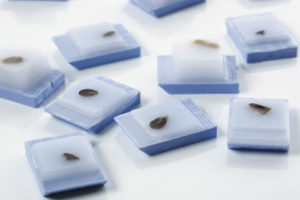
Detailed clinical data, computerized tomography CT, MRI, PET scans information, anti-GBM antibodies, HLA test, elevated biomarker levels, genetic and metabolic information, lung tumor tissue biopsy, pathology annotations associated with the Goodpasture Syndrome patient’s specimens is provided to a valued customer for drug discover, development and research. The Goodpasture Syndrome sera (serum), plasma and peripheral blood mononuclear cells (PBMC) biofluid samples are processed from patients peripheral whole-blood using customized collection and processing protocols provided by the researcher.
Bay Biosciences is a global leader in providing researchers with high quality, clinical grade, fully characterized human tissue samples, bio-specimens and human bio-fluid collections from cancer (tumor) tissue, cancer sera (serum), cancer plasma, cancer PBMC and human tissue samples from most other therapeutic areas and diseases.
Bay Biosciences maintains and manages it’s own bio-repository, human tissue bank (biobank) consisting of thousands of diseased samples (specimens) and from normal healthy donors available in all formats and types. Our biobank procures and stores fully consented, deidentified and institutional review boards (IRB) approved human tissue samples and matched controls.
All our human human tissue collections, human specimens and human bio-fluids are provided with detailed samples associated patient’s clinical data. This critical patient’s clinical data includes information relating to their past and current disease, treatment history, lifestyle choices, biomarkers and genetic information. Patient’s data is extremely valuable for researchers and is used to help identify new effective treatments (drug discovery & development) in oncology, other therapeutic areas and diseases. This clinical information is critical to demonstrate their impact, monitor the safety of medicines, testing & diagnostics, and generate new knowledge about the causes of disease and illness.
Bay Biosciences banks wide variety of human tissue samples and biological samples including cryogenically preserved -80°C, fresh, fresh frozen tissue samples, tumor tissue samples, FFPE’s, tissue slides, with matching human bio-fluids, whole blood and blood derived products such as serum, plasma and PBMC’s.
Bay Biosciences is a global leader in collecting and providing human tissue samples according to the researchers specified requirements and customized, tailor made collection protocols. Please contact us anytime to discuss your special research projects and customized human tissue sample requirements.
Bay Biosciences provides human tissue samples (human specimens) from diseased and normal healthy donors; including peripheral whole-blood, amniotic fluid, bronchoalveolar lavage fluid (BAL), sputum, pleural effusion, cerebrospinal fluid (CSF), serum (sera), plasma, peripheral blood mononuclear cells (PBMC’s), saliva, Buffy coat, urine, stool samples, aqueous humor, vitreous humor, kidney stones, renal calculi, nephrolithiasis, urolithiasis and other bodily fluids from most diseases including cancer. We can also procure most human bio-specimens and can do special collections and requests of human samples that are difficult to find. All our human tissue samples are procured through IRB approved clinical protocols and procedures.
In addition to the standard processing protocols Bay Biosciences can also provide human plasma, serum, PBMC bio-fluid samples using custom processing protocols, you can buy donor specific sample collections in higher volumes and specified sample aliquoting from us.
Bay Biosciences also provides human samples from normal healthy donors, volunteers, for controls and clinical research, contact us Now.
日本のお客様は、ベイバイオサイエンスジャパンBay Biosciences Japan またはhttp://baybiosciences-jp.com/contact/までご連絡ください。


